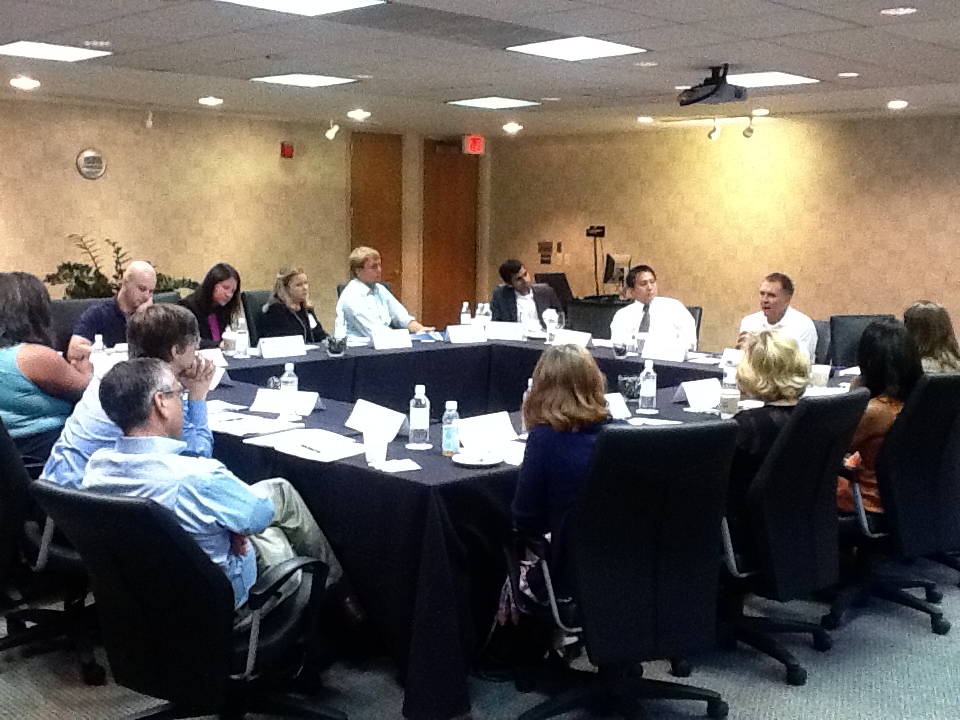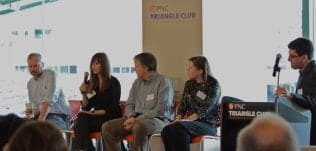
Experts and public relations professionals interested in building media relationships + a group of targeted journalists + good food and drink = successful media roundtable.
This above formula is a rather simplistic way to go about organizing a media roundtable. This past week at Duke University’s Fuqua School of Business, we used this approach in hosting a roundtable for local media in the Raleigh Durham area. We featured three of the school’s entrepreneurship experts and 11 journalists from the top media outlets in the area attended the event. It was the second consecutive year in which we organized an informal media roundtable, and both times the feedback from journalists and our internal spokespeople was overwhelmingly positive. Here are some insights from my experience organizing local media roundtables, which might be helpful if you are ever planning to do something similar:
1) Most importantly, such roundtables should be about two-way learning. We didn’t position this as a press conference (i.e. come hear are experts and write a story), but rather as an opportunity for us to learn about the journalists’ beats and for the media to hear from our experts. Therefore, we ask the media to introduce themselves at the beginning and share about how they cover the stories related to our experts’ specific area. Our experts then share their analysis. The Q and A is also about joint sharing – both the experts ask questions of the journalists and vice versa (unlike a typical press conference in which just journalists ask questions to a spokesperson).
2) Be targeted, both in terms of the journalists invited and the experts featured. For example, a business school covers many topics. Some of these topics resonate with local media, while others aren’t of interest. Once you determine the story angle, be targeted with the journalists you invite. An overwhelmingly majority of the journalists we invited to our event earlier this week attended because we were very selected and targeted.
3) Find the right balance between organizing a professional event, while not going overboard. You want to be sure that all the areas related to event management are in place: name tags to wear during informal networking, name plates to be put on tables during the more formal part of the event, food and drink to be in place, parking passes to be organized and signage to be clearly visible, etc. At the same time, this is not a gala dinner and you want to find the right balance between being organized and professional, but also making it informal and not intimidating.
4) Be clear on your internal expectations. The goal should not be frontpage coverage the next day (unless you have something truly amazing to share) but rather long-term relationship building. As opposed to thinking about three articles in the press the following day, the goal should be several stories over the long-term. You want to prove your expertise, listen to the journalists and connect the dots and then be the trusted source when the time comes. You should see greater ROI using this long-term approach.
5) To fulfill point number 4, you need to follow-up. It would be good to record the session or take good notes (if you are recording, announce this at the beginning and state the reason for doing this). Based on the learnings shared from the session, follow-up where necessary with proactive ideas mapped to some of the topics discussed during the roundtable. Send thank you notes afterwards, and use such an event as a springboard to keep in touch.
[thrive_leads id=’2085′]

